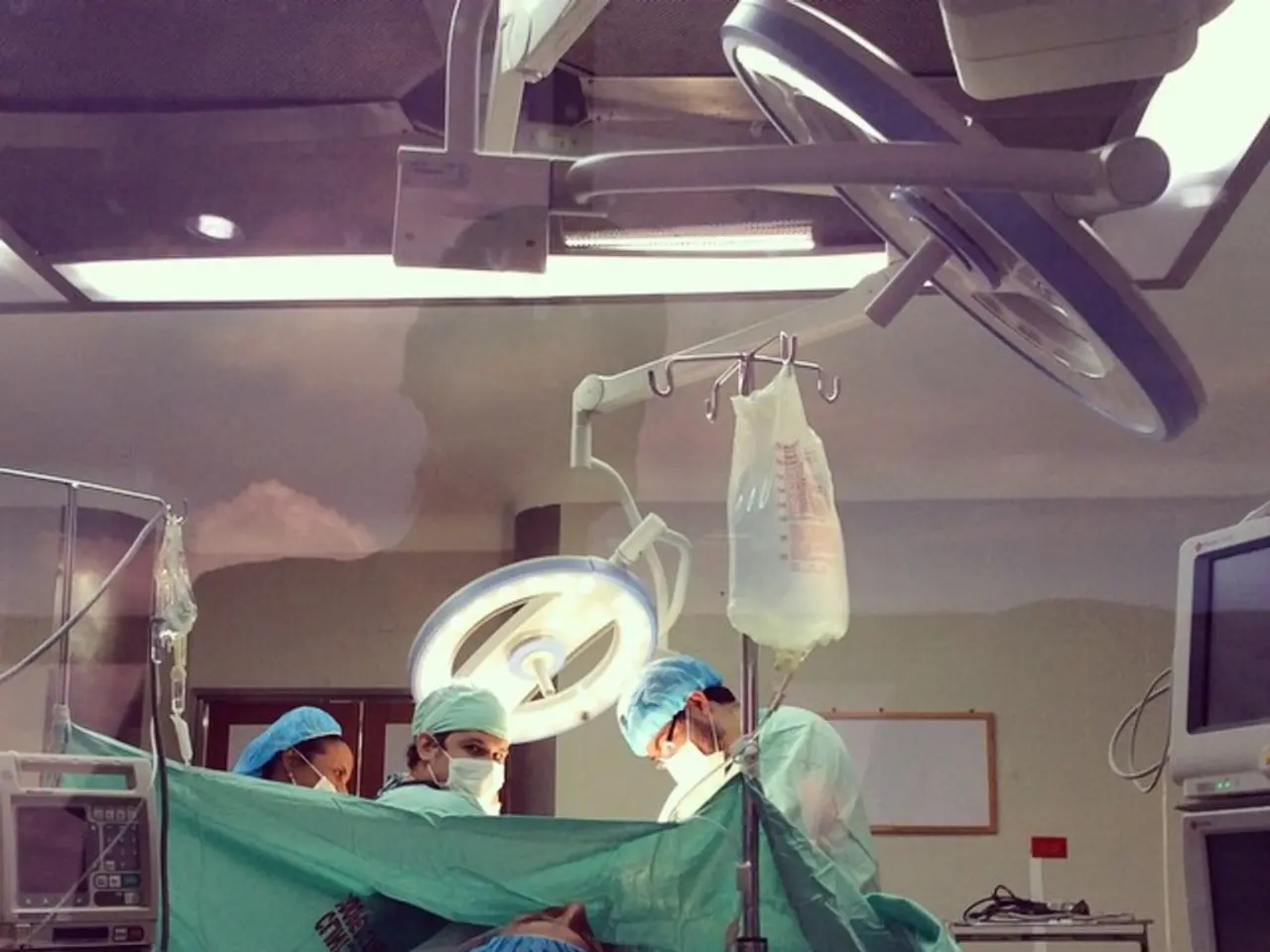Advanced robot-assisted surgical equipment gets UK's nod for usage
In a significant step forward for healthcare in the UK, the National Institute for Health and Care Excellence (NICE) has approved the use of 11 robotic surgery systems in the National Health Service (NHS). This move marks the acceleration of the roll-out of robotic surgery systems, which are expected to benefit millions of patients [1][2].
These robotic systems, capable of movements more precise than the human hand, have already made a substantial impact on patient care. Studies show that robotic surgery in NHS England led to a 50% reduction in patient hospital stay, a 49% decrease in post-operative length of stay, and a 29% improvement in labour productivity among surgeons [2]. Furthermore, robotics allow for performing surgeries with fewer team members, improving efficiency and workflow in hospitals.
Several NHS trusts have successfully performed complex procedures, including gynaecological and hepato-pancreato-biliary operations, using systems such as Intuitive’s da Vinci models [1][4]. The approvals were made as part of NICE's Early Value Assessment process, which will collect further evidence over the next three years on the cost-effectiveness of robot-assisted surgery [3].
Dr Anastasia Chalkidou, programme director of NICE's HealthTech programme, stated that these technologies have the potential to transform both soft tissue and orthopaedic surgical care in the NHS. Five systems have received conditional approval for soft tissue procedures, such as hernia repair, tumour removal, and gallbladder removal. Six systems have received conditional approval for orthopaedic surgery, including full and partial knee replacement procedures and hip replacements [1][2].
The first Health Technology Evaluation, looking at AI in analysis of X-rays for lung cancer, was published in September 2023. This marks the beginning of NICE's increased adoption of this approach for MedTech devices [5].
As the use of robotic surgery systems continues to expand, new post-market surveillance regulations have been laid before the UK Parliament to ensure patient safety and value for money [6]. The aim of these regulations is to enhance health security, as demonstrated by the UK Health Security Agency's (UKHSA) launch of innovative metagenomic surveillance [7].
In conclusion, robotic surgery is transforming NHS patient care by improving surgical precision, reducing recovery times, and increasing efficiency. With NICE-approved systems already in clinical use and full evaluation processes actively supporting widespread adoption over the coming decade, the future of surgical care in the UK looks promising.
For any comments or questions about this article, please contact [email protected].
References: [1] BBC News. (2023). NHS to use more robots for surgery. [online] Available at: https://www.bbc.co.uk/news/health-65417784
[2] The Guardian. (2023). NHS to use more robots for surgery. [online] Available at: https://www.theguardian.com/society/2023/sep/01/nhs-to-use-more-robots-for-surgery
[3] NICE. (2023). Early Value Assessment for Robot-Assisted Surgery. [online] Available at: https://www.nice.org.uk/guidance/evag10/chapter/1-Introduction
[4] Intuitive. (2023). da Vinci Surgery in the UK. [online] Available at: https://www.intuitive.com/en-gb/about-us/newsroom/da-vinci-surgery-in-the-uk
[5] NICE. (2023). HealthTech Programme. [online] Available at: https://www.nice.org.uk/our-work/healthtech/healthtech-programme
[6] UK Parliament. (2023). Post-market Surveillance Regulations. [online] Available at: https://www.parliament.uk/business/bills/bills-pending-introduction/2023-24/postmarket-surveillance-regulations/
[7] UK Health Security Agency. (2023). Metagenomic Surveillance. [online] Available at: https://www.gov.uk/government/publications/ukhsas-metagenomic-surveillance/ukhsas-metagenomic-surveillance
- The National Institute for Health and Care Excellence (NICE) has approved 11 robotic surgery systems for use in the National Health Service (NHS), paving the way for digitally-assisted health-and-wellness through medical technology.
- By implementing these health tech systems, patient care is expected to greatly benefit from improved precision, reducing recovery times and enhancing surgical efficiency in the UK.
- In the future, digital health advancements, such as AI-powered X-ray analysis for medical-conditions like lung cancer, will continue to be adopted and evaluated by NICE, driving the transformation of science-based surgical practices in the UK.




